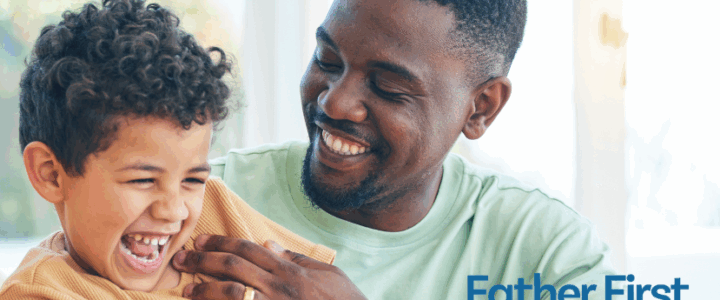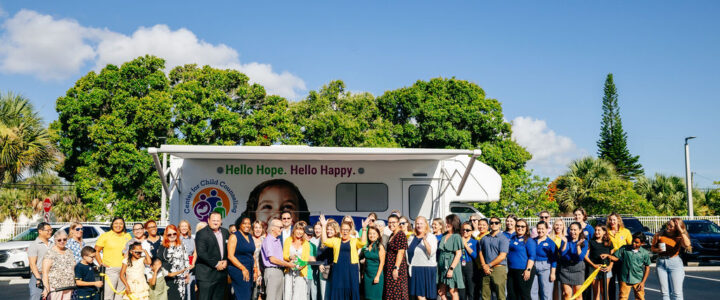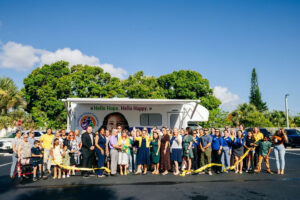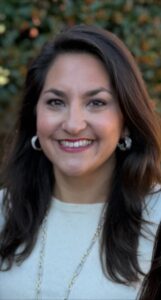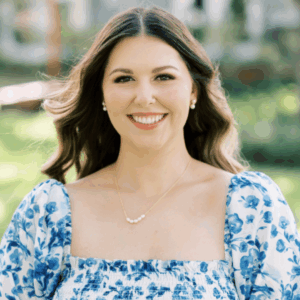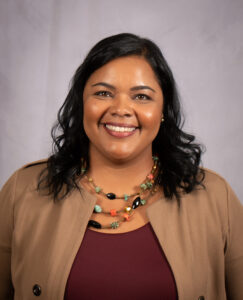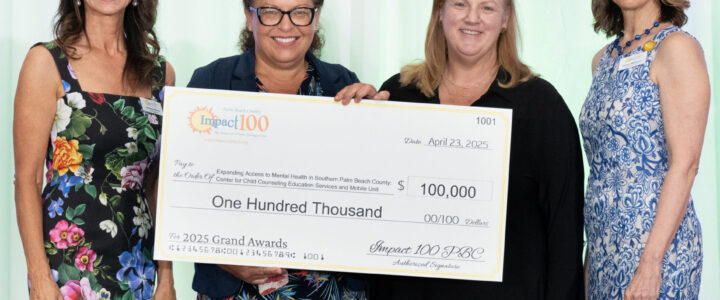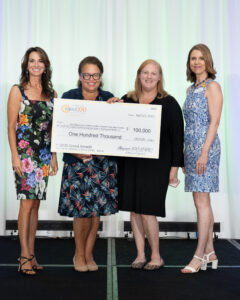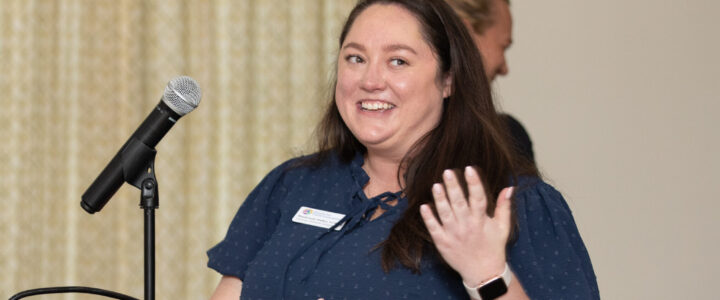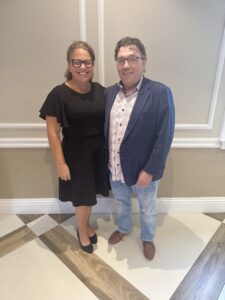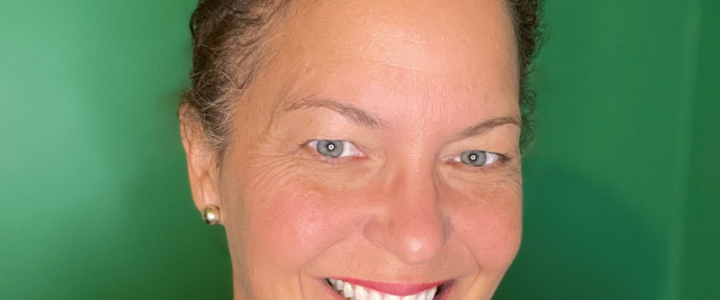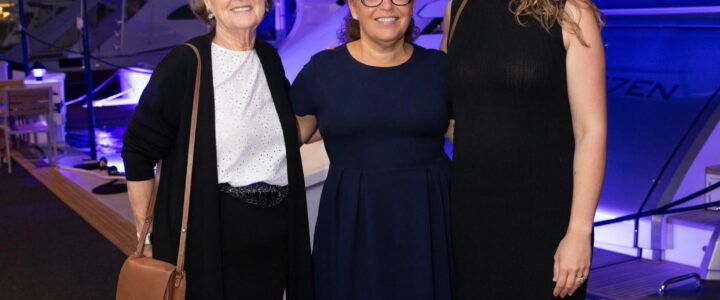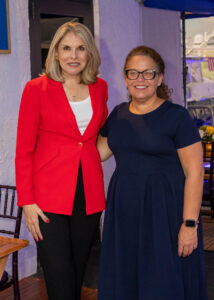NEWS RELEASE
March 6, 2025
For immediate release
Media contact: Cara Scarola Hansen
Center for Child Counseling Public Relations Counsel
cara@yourmissionmarketing.com
First Surgeon General of CA Lauds Palm Beach County’s ‘Model’ Public Health Approach to Fighting ACEs
Nadine Burke Harris, M.D., praised Center for Child Counseling’s data-to-action framework for treating childhood adversity and trauma at Lead the Fight luncheon.
 “In learning about the model, in learning about what is happening here…I wanted to come and see for myself because it truly is extraordinary…As someone who has seen it done so many different ways across the country and around the world…good intentions aren’t enough…I get really excited is to see the incredible ambition that is happening here…to see the data and the way it’s mapped. The data into action. A public health approach.”
“In learning about the model, in learning about what is happening here…I wanted to come and see for myself because it truly is extraordinary…As someone who has seen it done so many different ways across the country and around the world…good intentions aren’t enough…I get really excited is to see the incredible ambition that is happening here…to see the data and the way it’s mapped. The data into action. A public health approach.”
Nadine Burke Harris, M.D., spoke the above words about Palm Beach Gardens-based nonprofit Center for Child Counseling at an early-morning site visit on Friday, February 28, 2025. Burke Harris came from California to Palm Beach County to be the keynote speaker at the Center’s 10-year celebration of its Fighting ACEs initiative. In the process of planning her cross-country trip and learning more about the transformative work that CEO Renée Layman and her team are doing to flight childhood adversity and trauma, Burke Harris requested to see the Center’s work in action.
The day began with Burke Harris visiting Opportunity Early Childhood Education and Family Center where Center for Child Counseling is co-located on site to provide mental health services and support the pre-school aged children. In addition to touring the facility, the Center presented their data-to-action framework that was developed in response to Palm Beach County’s youth mental health crisis. Through the Data Dashboard, populated with data from more than 10,000 children the Center serves, the system shows exactly where they are located within the county with the various issues they are facing. This geomapping is driving the agency’s vision to better serve kids and families in our community.
As the former surgeon general of California and an internationally renowned pediatrician, public health advocate, and author, Burke Harris is best known for her pioneering work in the field of adverse childhood experiences (ACEs) and toxic stress. She is the one who thrust the subject of adverse childhood experiences into our national consciousness and dialogue. Our understanding of ACEs today is due to her groundbreaking insights and work in revealing how early adverse events affect lifelong health and well-being—for individuals, families, and communities.
The site visit gave Burke Harris an in-depth and up-close look at the public health approach for which she advocated for in California now in action in Palm Beach County, Florida. Despite the over-burdened medical model in the United States, Center for Child Counseling has integrated a healthcare approach throughout Palm Beach County where they meet families where they are–changing the way the mental health system is operating.
Burke Harris’ response: “When I see all of the work that you all are doing..the way of learning forward, the way of listening and being in community and in setting up systems, embedding and being in partnership with clinics and schools…all of this…this is exactly what is necessary to address this issue at a public health scale…I am so happy to be here to have the opportunity to see this model and I just look forward to being a partner to you all as you are driving forward.”
Following the morning site visit, Burke Harris shared her accolades of the work happening here in Palm Beach County with the 500 statewide business and system leaders who attended the 2025 Lead the Fight luncheon at the Kravis Center the same day. Her keynote address explored the profound impact of early adversity and trauma on childhood development and how each person can play their part–with a focus on supporting Center for Child Counseling in its role as the catalyst for systemic change in how our community addresses childhood trauma.
Burke Harris shared that through the landmark adverse childhood experiences study conducted by the CDC and Kaiser Permanente it is shown that there is a dose-response relationship between ACEs and adverse health outcomes over a lifetime.
“High doses of adversity in childhood affect the developmental trajectory of children’s developing brains, their developing hormonal system, their developing immune systems, and even the way their DNA is read and transcribed.”
ACEs impact everything–classroom behaviors, learning and comprehension, the ability to self-regulate–and can dramatically heighten the risk for future mental and physical health concerns. Society is grappling with big, complex issues: a youth mental health crisis, crime and overflowing jails, uncontrollable addiction, and generational cycles of abuse and trauma left on repeat. These dilemmas are often the result of unbuffered, untreated trauma experienced early in life.
Despite this bleak outlook, Burke Harris gave hope: “ACEs are not destiny. With early detection and early intervention, we can improve outcomes.”
Safe, stable, nurturing relationships and environments result in normalization of the developmental trajectory of the child’s brain, counteracting the effects of toxic stress. Supportive relationships, quality sleep, balanced nutrition, physical activity, mindfulness practices, access to nature, and mental health care help to reduce stress hormones, reduce inflammation, and enhance neuroplasticity.
We know from the science that early detection and early intervention profoundly improves outcomes and the biggest obstacle to early detection is our current system of response.
“So if we don’t have an effective system of response so that those primary care clinicians can screen and feel comfortable that they have somewhere to refer, the result is that those kids go without intervention. If we are talking about 42% of kids in the sites of where Center for Child Counseling is with four or more ACEs…The biggest obstacle to that child being able to get what they need is the infrastructure around our system of care.”
In most of the country, in order to get access to mental health services, a person has to have a mental health diagnosis. Without a mental health diagnosis, the mental health provider can’t even get paid.
Using the example of breast cancer, she asked the audience to imagine that to get access for treatment you need to be overtly symptomatic–night sweats, bone pain, large lump.
“We would be selecting for people to present at stage four. The five-year survival rate for stage four breast cancer is around 32%…so, if you were to look at that, you would say breast cancer is untreatable, the survival rate is very low.”
According to the CDC, the annual cost in Florida for untreated ACEs is $796 billion: nationally that cost is $14.1 trillion per year.
As Surgeon General In California, Burke Harris led the way in deploying a coordinated public health approach to address ACEs and toxic stress, including: screening for ACEs in primary care; trauma-informed clinical care; county and local network of care coordination; and public awareness and education. California’s ACEs Aware initiative is the nation’s first statewide effort to screen patients for risk of toxic stress by assessing exposure to ACEs.
In California, they changed their health care policy to say that “children are eligible for services based on risk instead of based on harm. So, a child with four or more ACEs does not require another diagnosis to be eligible for care.”
“We can’t afford not to do this work. It is exceedingly costly for us to not have an organized and a systemic public health approach for addressing adverse childhood experiences and toxic stress.”
Burke Harris touted our nation’s ability to treat public health crises, citing: the reduction in cigarette smoking amongst high school seniors from 25% in 1976 to 3.6% in 2018; death rates from HIV AIDS dramatically declined over the course of 30 years from a six month mean mortality to now the life expectancy being greater than 50 years from diagnosis.
“The Time is Now. All the right people are in this room, right now. From what I have seen, from the leaders from the Center for Child Counseling, you guys have the recipe. You have the ability to do this work…I am so excited to see this work, and I want to thank you for this investment in this extraordinary model that is happening here.”
As a Palm Beach County based nonprofit, Center for Child Counseling focuses on a public health approach to building awareness and action around addressing childhood adversity and trauma. CFCC was founded in 1999 with the vision that every child will grow up feeling safe and nurtured in communities where they can thrive. Using a prevention and healing-centered lens, CFCC focuses on changing the systems and practices that keep adversity and trauma firmly in place. The Center hosts events, like Lead the Fight, in order for all community members to understand and own the idea that we each have a stake and role in child and family wellbeing.
According to Layman, “We don’t have to wait for a child to have a mental health diagnosis or crisis or go to the detention center before we do something. Children have tremendous potential–which our society needs–and which we have a shared obligation to foster and protect.”
Kathy and Paul Leone served as the honorary chairs and WPTV Channel 5’s Ashley Glass as the emcee for the February 28th luncheon.
For more information on the Center’s fight against ACEs or to support their work, visit: centerforchildcounseling.org/leadthefight.
About Nadine Burke Harris, M.D.:
Nadine Burke Harris, M.D., MH, FAAP is an internationally renowned pediatrician, public health advocate, and author–best known for her pioneering work in the field of ACEs and toxic stress.
Dr. Burke Harris is the founder and former CEO of the Center for Youth Wellness in San Francisco, an organization dedicated to improving the health of children exposed to ACEs. Dr. Burke Harris served as California’s first Surgeon General, where she focused on addressing the root causes of health disparities and promoting early interventions for childhood trauma. Her influential book, “The Deepest Well: Healing the Long-Term Effects of Childhood Adversity,” has brought widespread attention to the impact of early adversity on long-term health and well-being.
About Center for Child Counseling
Center for Child Counseling has been building the foundation for playful, healthful, and hopeful living for children and families in Palm Beach County since 1999. Its services focus on preventing and healing the effects of adverse experiences and toxic stress on children, promoting resiliency and healthy family, school, and community relationships. www.centerforchildcounseling.org Twitter: @ChildCounselPBC Facebook: @CenterforChildCounseling Instagram: @childcounselpbc
###

